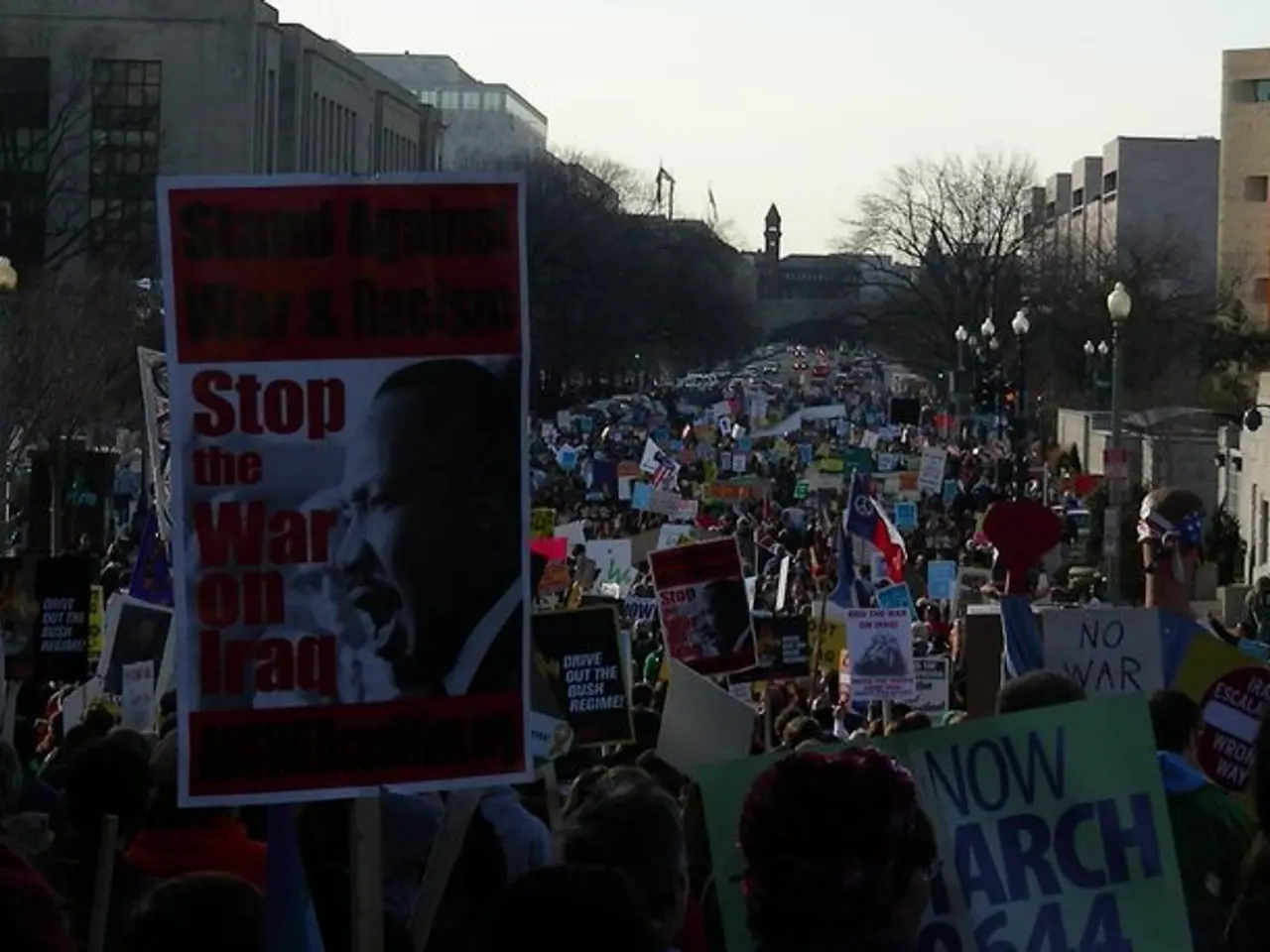Democrats in Texas face persistent threats as Senator Cornyn appeals for FBI intervention amidst the ongoing quorum break dispute
In an unprecedented turn of events, Texas Senator John Cornyn has requested and announced the involvement of the Federal Bureau of Investigation (FBI) to track down Texas Democrats who fled the state to prevent a vote on redistricting. The Democrats' absence is being framed by Senator Cornyn as shirking "constitutional responsibilities."
The request for federal assistance has sparked significant controversy, with questions about the extent of federal involvement in a state legislative quorum dispute and the balance of powers at the forefront of the debate. Texas state law allows for the arrest of absent legislators to restore quorum, but the use of federal law enforcement in this context is novel and contentious.
Governor Greg Abbott and Attorney General Ken Paxton have asserted state authority to call absent lawmakers back and have sought to use state law enforcement to detain and return them under state rules authorizing arrest of legislators to establish a quorum. However, critics argue that deploying the FBI—a federal agency—in what is essentially a state legislative matter risks dangerous politicization of federal law enforcement and overreach.
Mark P. Jones, a political science professor at Rice University, has dismissed the likelihood of the Democrats being removed from their positions. Abraham George, chairman of the Texas GOP, has expressed support for Senator Cornyn's actions and expects Democrats to return to the state and do their jobs. On the other hand, State Representative Diego Bernal, a Democrat from San Antonio, criticizes the actions of Senator Cornyn and Attorney General Paxton, stating they are willing to sell people out to win or keep a seat.
Joshua Blank of the Texas Politics Project has expressed concern that the involvement of federal agents could lead to a constitutional crisis if they attempt to compel state representatives to return. Meanwhile, Abraham George also chastises Democrats who left the state for leaving conversations over flood relief on the table.
It's important to note that the Democrats have been charged with a civil offense under Texas House rules, which means the FBI lacks constitutional authority to make arrests in this matter. Additionally, Attorney General Paxton is not currently investigating any criminal charges against the Democrats who left the state.
Paxton has also filed a petition to remove Texas House Democratic Caucus Chairman Gene Wu from office and is investigating two political action committees, one run by Beto O'Rourke and the other by George Soros, for allegedly funding the Democrats who left the state.
This situation highlights an unusual intersection of state legislative quorum rules, partisan conflict over redistricting, and federal law enforcement, with significant constitutional debates about the scope and propriety of such federal action.
In a separate development, the Austin city council is deciding how much higher to raise the tax rate, a matter unrelated to the main topic of this article.
Both Cornyn and Paxton are currently engaged in campaigns against each other for Cornyn's Senate seat, adding another layer of political intrigue to the ongoing standoff. The Democrats are evaluating how much longer they will continue to break quorum on a day-to-day basis, with concerns about a second special session due to their continued absence.
- The controversy surrounding Senator John Cornyn's request for FBI involvement in the Texas legislative quorum dispute has heightened discussions about the appropriate role of policy-and-legislation, politics, and crime-and-justice in state affairs, as critics fear the politicization and overreach of federal law enforcement in war-and-conflicts that traditionally fall under state jurisdiction.
- As the debate on the constitutional responsibilities of state lawmakers and the balance of powers unfolds, general-news outlets are closely monitoring the ongoing standoff between Texas Democrats who fled to prevent a vote on redistricting and Governor Greg Abbott, Attorney General Ken Paxton, and Senator John Cornyn, whose use of state law enforcement and federal law enforcement agencies stirs ongoing debates on the politics of the situation, with potential implications for policy-and-legislation and crime-and-justice.






